Counting Crows' Adam Duritz: 10 records that changed my life
How Big Star and Miles Davis shaped one of modern music's best songwriters
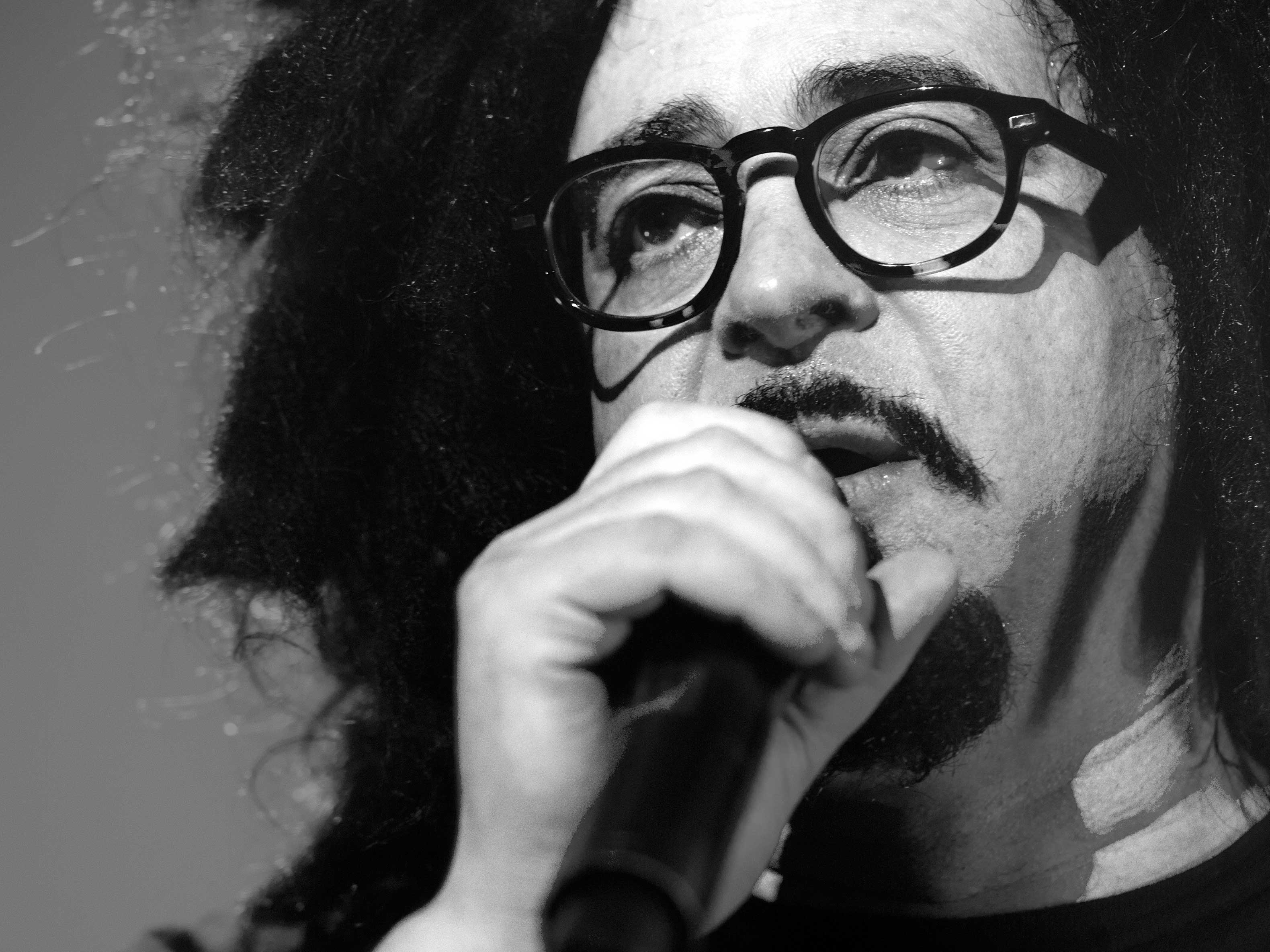
Intro
“Music is one of those things where it either registers with you or it doesn't. There's no way to know what's gonna resonate with anyone else. Do I know what makes a great record? No. Does anybody? It's like all art: you either like it or you don't. I make music that's meaningful to me, because that's the only thing I can do.”
"Everywhere we went, I wandered into used record stores looking for these records. I found everything on that list in England”
You'll rarely hear anyone talk about music the way Adam Duritz does. We've been on the phone with him for nearly an hour and we're feeling a little... fatigued. Adam does that to you. In a good way. Rattling off release dates, b-sides, personality traits of band members, and the 'story behind the song' for a whole bunch of albums that have changed his life, he's thoroughly jazzed to talk music. And boy is it beautiful to listen to.
Musical brainiac
The Counting Crows frontman has a seemingly limitless knowledge of the sounds he loves; like part of his brain is permanently jacked into Wikipedia or Rock's Backpages. Funk, rap, rock 'n' roll, blues, country, folk... It's all in there, a melting pot of lyrics, melodies and moments that shaped him into the critically acclaimed artist he is today. So it should come as no surprise to learn that as well as discussing individual records, Adam's chosen to talk about “groups of records” too. So yeah, there's a fair few in this feature, and some of them were hard wins for him...
“Now when you hear a record you can buy it online for the most part,” says Adam. “When I was a kid I'd read about records but I couldn't always find them because vinyl often went out of print. As a child I kept this list of about 20 records that I wanted but couldn't find. I kept the list until I was about 18, when my parents took me, my grandmother and my sister on a trip to England. Everywhere we went, I wandered into used record stores looking for these records. I found everything on that list in England.”
Ready to read about Adam's life-changing records? It all begins with the King of Pop...
Counting Crows are on tour now. UK fans can catch them at Wolverhampton and Newport on 10 & 12 June. For tickets and global tour dates head over to countingcrows.com
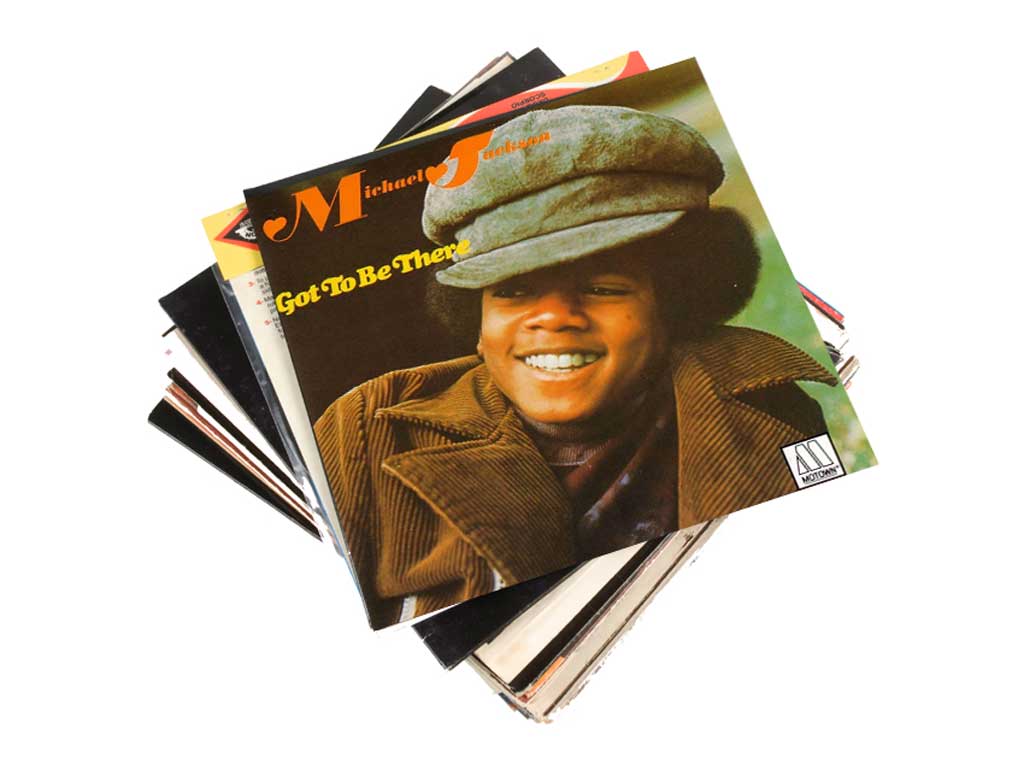
Michael Jackson - Got to Be There (1972)
“It's the first record I bought. I listened to my parents Beatles records until I wore out the grooves, but I bought Got to Be There myself, as a little kid of six or seven.
"Not only did it blow my mind because Michael's singing was so incredible, but he was a kid like me – he was older, for sure, but he was a kid still. The first song on that record was Ain't No Sunshine, which is how I heard about Bill Withers, who's also amazing.
"That whole record really knocked me out, partially because it's the first record I bought, partially because the first concert I ever saw was Jackson 5, and largely because he was a kid, I was a kid, and I was like, 'Wow, this is cool'. Did he inspire me to sing? I didn't think of myself as a singer back then. And he was way better.”
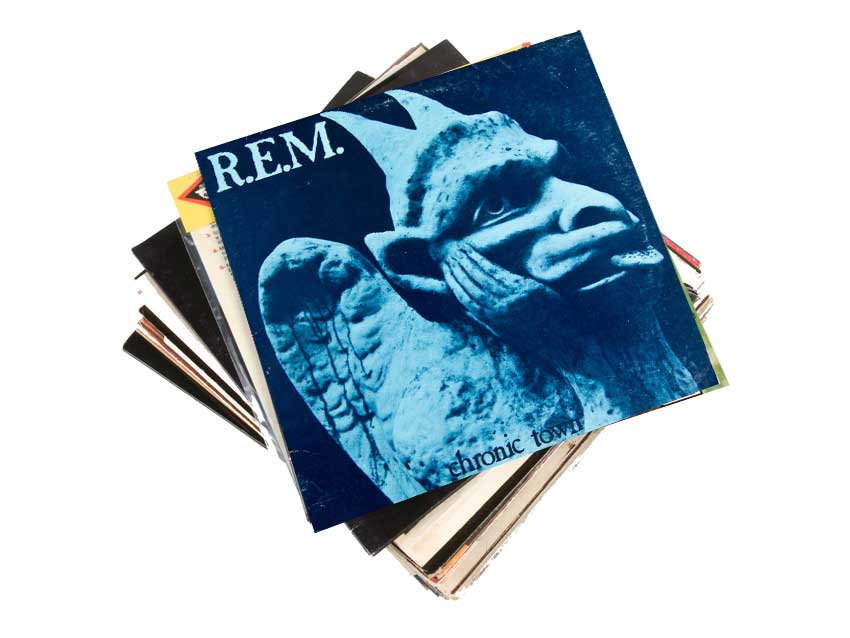
R.E.M. - Chronic Town (1982), Run-D.M.C. - Raising Hell (1986)
“I tend to associate these records with me becoming a songwriter. Chronic Town came out when I was a freshman in college and it was at the time when I wrote my first songs. There was something impressionistic about it. You felt what Michael Stipe meant even if you didn't know what he meant.
“A few years later I heard Raising Hell. With Run-D.M.C., not only did they rap alone but they rapped together; they seemed to weave in and out of each other quickly, like this rapid-fire exchange between two people. It was almost like jazz. It was the first time I'd heard that in rap, but it also reminded me of the way the guitar and bass and the vocals moved together in R.E.M.'s songs.
“It made a big impression on me as a young songwriter, because then it wasn't just about putting some words on a page and singing them. Then there was a way in which all of that music had to come together to make it work – where one plus one equals 100 instead of two.”
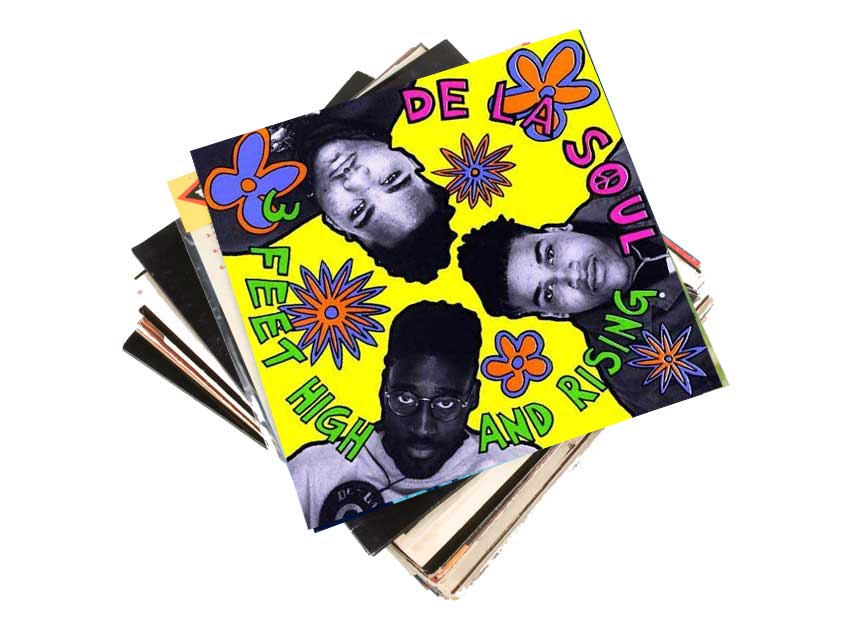
De La Soul - 3 Feet High and Rising (1989)
“3 Feet High and Rising is probably the greatest sampling record ever made. And there'll never be another one now because you're not really allowed to sample like that any more. Those songs were such incredible pastiche artworks of sampling.
“3 Feet High and Rising, along with R.E.M.'s Chronic Town and Run-D.M.C's Raising Hell had a lot to do with how I wanted to express myself. It was a period of time when I really worked hard on being a singer and a songwriter, struggling in bands before Counting Crows happened.”
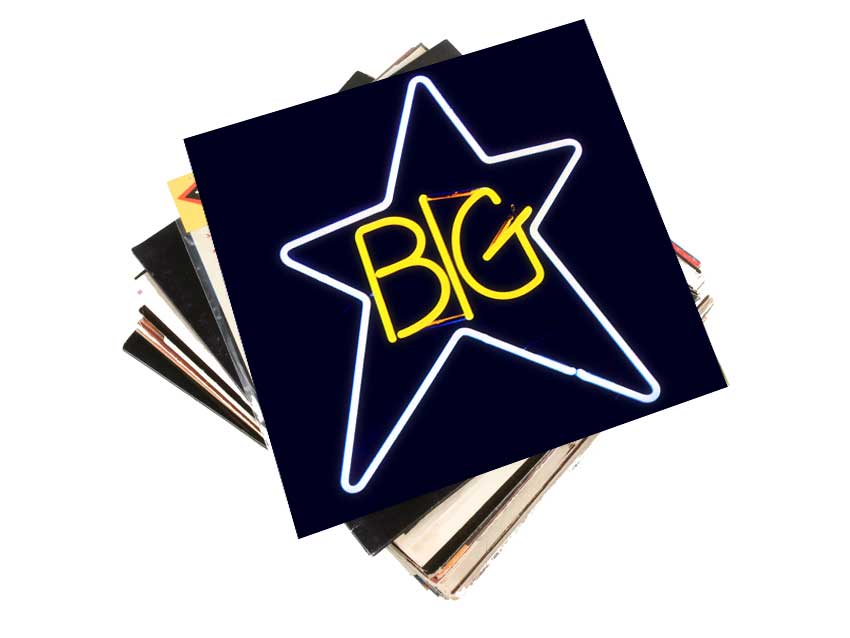
Big Star - #1 Record (1972), Big Star - Radio City (1974)
“For years I'd wanted to hear these records, and I finally found them on that trip to England with my family. I remember seeing The Bangles in concert on their first album tour and they covered September Gurls. Big Star are probably the most influential band in my life.
"As songwriters, Alex Chilton and Chris Bell were way ahead of their time. They predate everything... All 80s and 90s indie rock kinda comes from Big Star. It's a confessional style of songwriting mashed with big guitars and Beatles-esque harmonies.
“#1 Record and Radio City solidified a lot of what I wanted to do as a songwriter. The last song on [Counting Crows'] Underwater Sunshine is The Ballad of El Goodo, by Big Star. I also love Thirteen, which is a song written from the perspective of a 13-year-old boy about a girl he likes.”
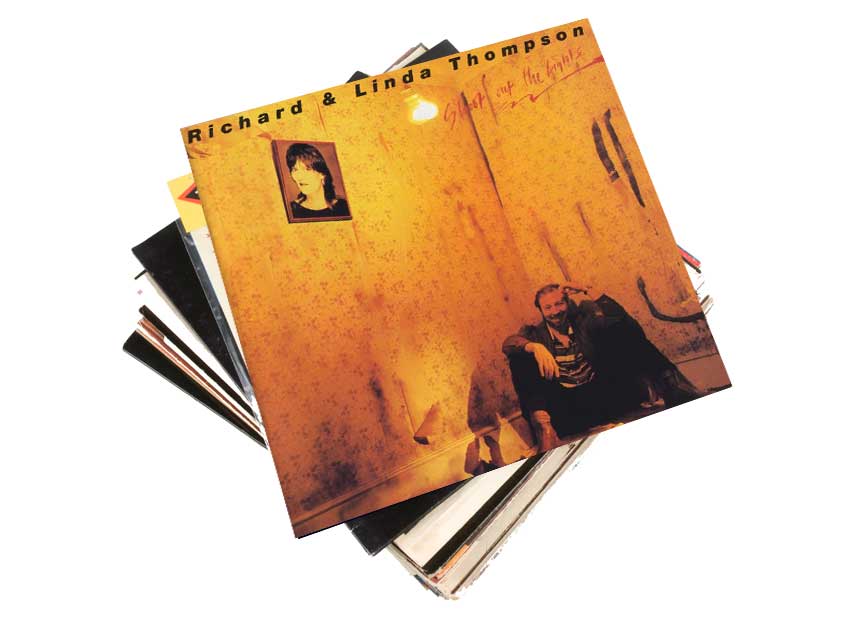
Richard and Linda Thompson - Shoot Out The Lights (1982)
“I'd read about this incredible guitar player and singer called Richard Thompson, and how he'd been in this band called Fairport Convention, an amazing band but none of their albums were easily available in America. After leaving Fairport he made records with his wife [Linda Thompson], who was also a great singer.
"You've got Jimi Hendrix, Eric Clapton, Prince and Richard Thompson. I'm not sure how much further out that list goes”
“I had a copy of Shoot Out the Lights and it blew my mind. There aren't many people in music like Richard Thompson; it's the triple threat thing where he can play guitar almost better than anyone, he writes great songs and his voice...
"You've got Jimi Hendrix, Eric Clapton, Prince and Richard Thompson. I'm not sure how much further out that list goes.”
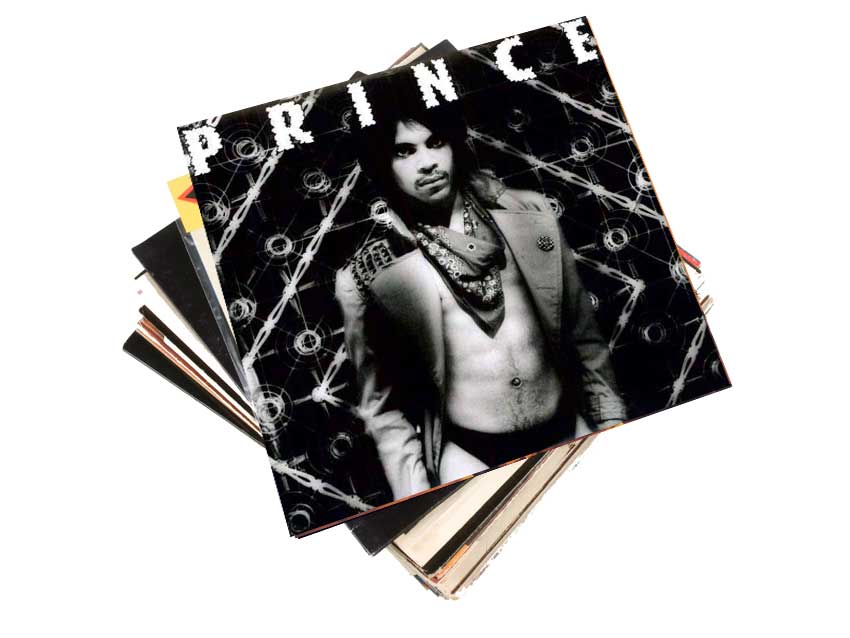
Prince - Dirty Mind (1980)
“I was a kid in high school when Dirty Mind came out. I remember that Prince went on tour with The Rolling Stones. The fans hated him, but the Stones were flipped out by Dirty Mind and, when I heard it, yeah, me too.
"As a kid I remember thinking how weird it was that music had become so divided. And then Prince came along and it wasn't divided any more"
"It kind of pre-dates a lot of music that we have nowadays, a lot of what indie rock would become. Just really stripped down guitars and drums. Really spare, rock 'n' roll stuff.
“Rock 'n' roll started off being a multi-coloured thing, as far as the people who played it – in the 60s and 70s, a lot of white and black people were singing the same stuff, but in the late 70s and early 80s rock 'n' roll became a white thing, except for Michael Jackson. As a kid I remember thinking how weird it was that music had become so divided. And then Prince came along and it wasn't divided any more.
“Prince was big for me because he broke down all the cultural barriers that had risen up in music. The song Dirty Mind is great, but I love the riff on When You Were Mine. It's simple rock 'n' roll but it's very funky.”
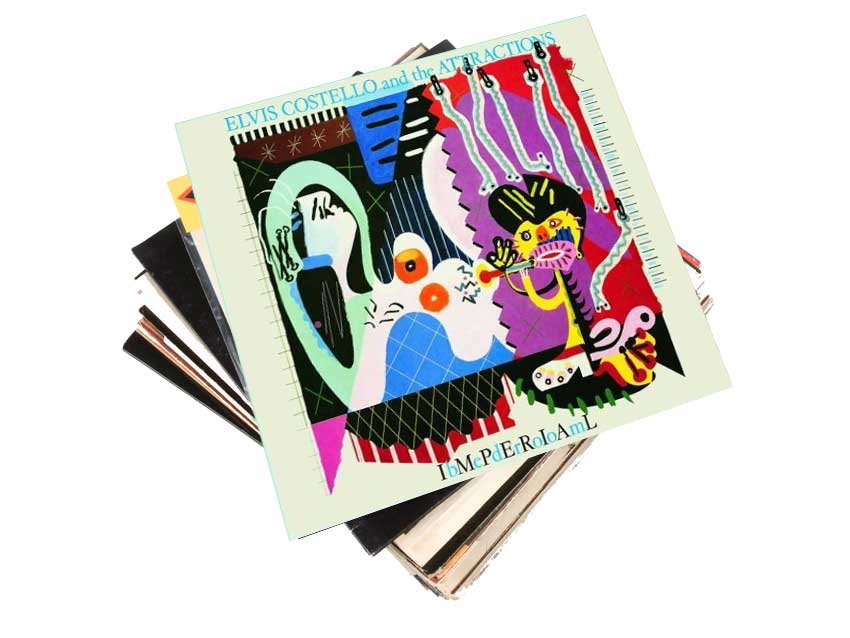
Elvis Costello - Imperial Bedroom (1982), Joe Jackson - Night and Day (1982)
“Around 1982, Joe Jackson and Elvis Costello both made records. Elvis made Imperial Bedroom and Joe made Night and Day, and I remember reading about them in the New York Times.
"Elvis always had words just spewing out of him – they just came flying at you"
"I got both records right away, but I also remember someone saying how strange it was that these two angry young men from the British post-punk scene were suddenly making records that were almost homages to Cole Porter [master songwriter and composer]; that they were writing from the same kind of depth as he did.
“Night and Day and Imperial Bedroom opened me up to a huge world of music that I'd never really listened to before; music from my parents and my grandparents' generations. Those records helped me discover some of the greatest songwriters ever.
"I loved Beyond Belief, the opening song on Imperial Bedroom, and Almost Blue. Elvis always had words just spewing out of him – they just came flying at you. It's almost like automatic writing the way it came out of him.”
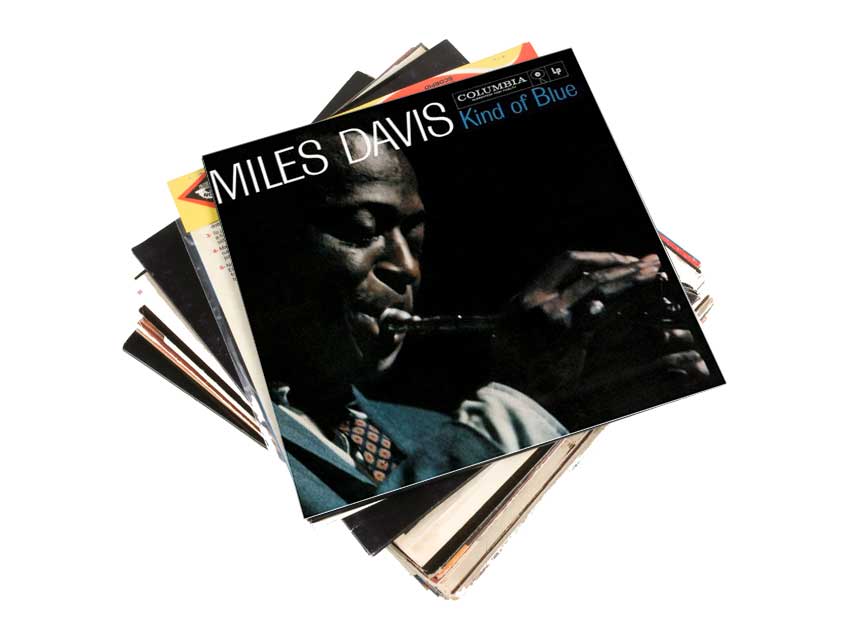
Miles Davis - Kind of Blue (1959)
“This is my favourite record. I never think of Kind of Blue in terms of individual songs, but I'd recommend So What and All Blues right away. When I was a kid my dad had some jazz records. I'd listen to them but I didn't know how to identify with jazz because there weren't any words.
"One person doesn't usually break down frontiers that many times. He was a freak!”
"When I was in my first band, one of my bandmates gave me a cassette with Kind of Blue on one side. I wore that tape out listening to it.
“Most artists aren't revolutionary, simply because there's only so many times you can do that. You may write great songs and make classic albums but not necessarily change the way people think about music. Miles did it four times – he had those modal [jazz] albums he made around Kind of Blue, he had Bitches Brew, where he did the first kind of electro-funk jazz, he had those orchestral records with Gil Evans, and then there's the bebop period with Herbie Hancock.
"One person doesn't usually break down frontiers that many times. He was a freak!”
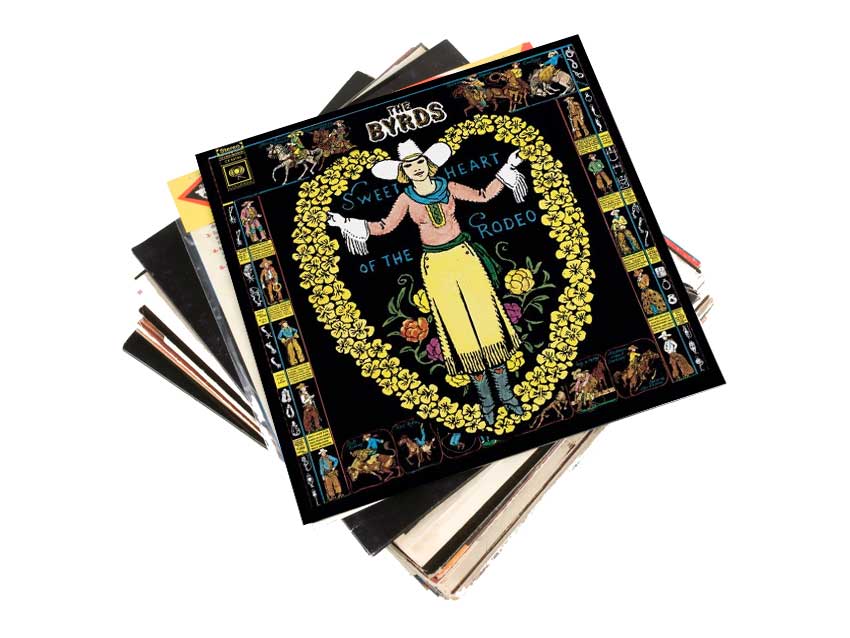
The Byrds - Sweetheart of The Rodeo (1968)
“This record introduced me to Gram Parsons... And he opened up all country music for me. Musically speaking, Gram is one of the most important figures in my life – we even covered You Ain't Goin' Nowhere [From Sweetheart of The Rodeo] on Underwater Sunshine. The first thing I heard by Gram was Sweetheart of The Rodeo and it totally blew me away.
"Gram burned the candle at both ends then pissed gasoline all over it”
“Gram was a huge influence on a whole bunch of people, including the Stones, and Emmylou Harris was his backing singer. Country rock started to become huge when Gram was playing it, and then The Eagles started played country rock and it became massive.
For a long time people thought country rock was all about The Eagles, but actually it had a lot to do with Gram. But he died young – Gram burned the candle at both ends then pissed gasoline all over it.”
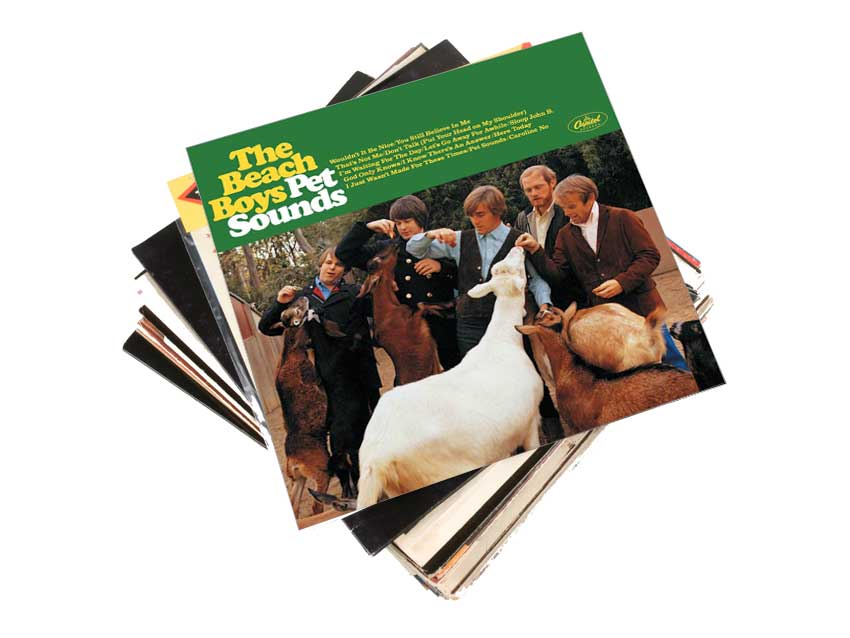
Beach Boys - Pet Sounds (1966)
“It's a famous record now, sure, but back when I was young Pet Sounds wasn't so easy to find because it was such a huge flop when it came out. It was a Beach Boys record for Beatles fans, but at that point Beatles fans hated Beach Boys music and Beach Boys fans hated Beatles music, so nobody liked it.
“Pet Sounds was totally passed by when it was released, instead of being recognised for what it was: a revolutionary moment in music”
“Pet Sounds turned into my fascination with that whole period where Brian was loosing his mind. He had a lot of mental illness problems that had been building and building until finally they crushed him. He was also crushed by the reaction to Pet Sounds. What a thing to do, to create one of the greatest masterpieces of all time and have the response of... Nothing, except derision.
“Brian did this confessional, emotional kind of songwriting. You can hear the ache in Wouldn't It Be Nice and Caroline No. It's heartbreaking to hear, 'Wouldn't it be nice if we were older then we wouldn't have to wait so long', and he means it; it's so heartfelt. It's such a simple thing he's saying, but its hard to say simple things and make them feel honest in a way that breaks you.
“God Only Knows and Wouldn't It Be Nice were masterpieces. It's such as shame [that Pet Sounds was so poorly received initially] because The Beatles get credit for making Sgt. Pepper's the greatest rock 'n' roll album ever because of how they incorporated the orchestral stuff, but Paul McCartney has said in a million interviews that he would never have thought of any of that if he hadn't heard Pet Sounds.
“Pet Sounds was totally passed by when it was released, instead of being recognised for what it was: a revolutionary moment in music.”